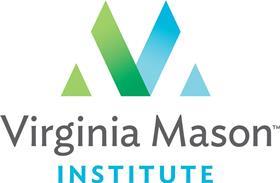The covid-19 pandemic has exacerbated long-standing challenges with patient care and staff engagement. As leaders, we must look honestly and humbly at the gap between our aspirations and our reality, and we must sign up for the hard work of closing it.

Recent efforts by the NHS show us both how this can be done and why it’s worth it. In 2021, the NHS concluded a five-year partnership with Virginia Mason Institute, focused on building a culture of continuous improvement at each of five hospital trusts. By the end, three trusts had improved their quality ratings and all five had conducted more than 100 improvement workshops, leading to thousands of hours saved and errors reduced.
Below are three key lessons from their experience that suggest a way forward for organisations worldwide.
Aligning diverse stakeholders
Health systems are notoriously complex, and various stakeholders are just as likely to experience conflict as harmony. To move forward, we need to shift our mindset and behaviours to foster respectful collaboration.
The NHS improvement experience offers a powerful solution in its Transformation Guiding Board. The TGB brought together all five trusts’ chief executive officers and select NHS regulators for full-day monthly meetings to provide strategic oversight and share learnings across organisations.
Through the TGB, CEOs and regulators became true partners and trusted collaborators. All CEOs came to refer to the meetings as “the best working day of the month,” and the board continues to meet today.
What was achieved in those meetings can — and should — happen elsewhere. Partnerships like these show a way forward for complex health systems to make meaningful progress on safety, quality and access.
Change starts with leaders
Leaders simply cannot understate the responsibility they have in guiding change within their organisations. The experience of the five NHS trusts proves that when leaders commit fully and visibly, change spreads and cements. When they don’t, the same old problems go unsolved.
Part of that commitment is agreeing to change their own behaviour: framing problems so that teams — those closest to the work — can be the ones solving them. This requires leaders to shift from serving as a hero or problem solver to serving as a coach and mentor.
Changing behaviour can be incredibly difficult, but leaders who adopt this style usually find it works better for everyone. As best said by Dr. Gary Kaplan, “when we come to the table to learn and transform — beginning with ourselves — the result is powerful.”
The power of embracing a new mindset
The five trusts achieved many tangible results, including time savings and error reductions, but they also succeeded in changing how teams think and talk about safety, waste, budgets and other aspects of care and operations.
As a senior clinician at one trust put it, “I don’t think [our executives] were quite prepared for how this method really shines a light on culture, and exposes behaviour, relating to the way we work. It’s made us very open in terms of patient safety. That’s a good thing.”
Although it can’t be captured in a data point, this is the true manifestation of change. Our mindsets, and the dialogues we have with our teams, are what allow individual improvements to last and the daily act of improvement to continue.
The pandemic showed us the time is now
Just as the partnership was ending, the covid-19 pandemic presented a real-world test of everything the five trusts had learnt. They answered the call, using their new improvement tools and culture to decrease the turnaround time for swab testing, “flip” wards between caring for covid and non-covid patients, and manage countless other challenges.
Our whole industry can be proud of the grit and ingenuity we’ve shown in response to the pandemic. But our job as leaders is to empower that way of working even without the pretext of crisis. The daily mandates of patient safety, timely care and a respectful workplace are every bit as urgent and demanding of our focus.
By heeding recent lessons from the NHS, we can fulfil our promise to strive for better, every day, for the patients we serve.
Download Virginia Mason Institute’s key takeaways from the Warwick Business School NHS partnership evaluation including:
- How creating a new management system calls for the whole organisation to work together to enhance value
- How leadership must focus on coaching, not control
- How setting targets requires both learning and “unlearning”
- How a Transformation Guiding Board provides a model for collaboration
Join us for our 15 December executive roundtable webinar: Executive Roundtable: Lessons from the NHS-VMI Partnership Evaluation
























![Wendy Korthuis-Smith[2]](https://d3e6tmgg461bic.cloudfront.net/Pictures/159x106/7/6/4/3063764_wendykorthuissmith2_965497_crop.jpg)





